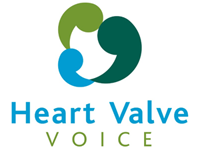Heart Valve Disease
QUICK LINKS
Heart Valve Disease Symptoms
Aortic stenosis and mitral regurgitation are among the most prevalent types of heart valve disease.
Symptoms of Heart Valve Disease Include:
- Shortness of breath
- Chest tightness or pain
- Fatigue
- Light-headedness, dizziness, or fainting
- Difficulty with physical activities
- Feeling unusually old or worn out
At Age 65+, experiencing breathlessness, chest pain, or dizziness isn’t necessarily a normal part of ageing; these could be signs of heart valve disease. If you encounter any of these symptoms, schedule an appointment with your GP and request a simple stethoscope examination.
Asymptomatic Cases: Some individuals with heart valve disease may not experience noticeable symptoms and can remain asymptomatic. Regular health checkups and annual stethoscope evaluations are crucial for the early detection of heart valve issues.
Emergency Situations: For severe symptoms, such as chest pain or collapse, call 999 immediately for emergency medical assistance. For milder symptoms, arrange a stethoscope check with your GP. Even mild symptoms can indicate a serious condition, so a professional evaluation is essential for appropriate diagnosis and treatment.
Understanding Symptoms:
The heart’s primary role is to pump oxygen-rich blood throughout the body. When heart valves malfunction, they impede the proper flow of blood, depriving your body of the oxygen it needs, which leads to the symptoms associated with heart valve disease.
Symptom Tracker
If you have concerns about your heart health, use our symptom tracker to monitor and document your symptoms before visiting your healthcare provider. This tool is designed to help you provide a clear and detailed overview of your symptoms.
Please click here to view and print the symptom tracker
Tips for family, friends and carers
Ask yourself these questions about our loved ones
- Are they experiencing chest pain, dizziness or experiencing palpitations?
- Are they finding it difficult to exercise and move around easily?
- Do they complain of feeling older than their age?
- Are they feeling short of breath?
- Are they suffering from excessive tiredness or fatigue
Heart Valve Disease
QUICK LINKS
Patient Story: Marina
Not long after her 50th birthday in 2005, Marina attended a Well Woman Clinic, as many women do, to look into having Hormone Replacement Therapy (HRT). It was during the routine tests at the clinic when she first discovered that her blood pressure was quite high. On the clinic’s recommendation, she paid a visit to her GP. Thinking back, Marina also had begun to notice that she would sometimes feel shortness of breath when she exerted herself, but simply thought it was all part of being in your 50s!

Read Marina’s story in full…



